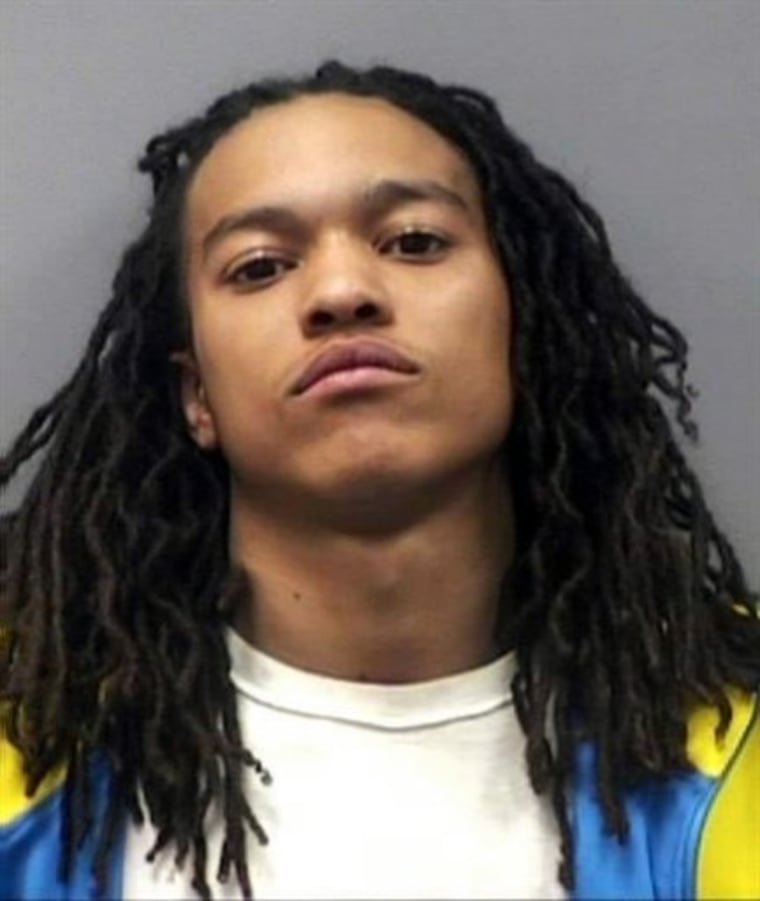Nicholas Weaver was sitting in his college science class last week, months from graduation, thinking about putting his sterling résumé — Eagle Scout, volunteer, courthouse jury clerk, Sunday school helper — on law school applications.
Suddenly, Weaver was being led away from school in handcuffs, the unlikeliest of suspects in the killing of a fellow teen in Baltimore nearly six years ago.
Weaver, the 22-year-old son of a respected Baltimore family, and Charles H. Davis, 21, are accused of shooting David Baskin Jr. on July 3, 2002, in what police describe as a fight over a girl.
Defense lawyers insist the allegations sharply contradict the image Weaver built on his path to a degree at Adelphi University in Garden City on Long Island: intern at a Baltimore law firm last summer; a jury clerk for the circuit court in Baltimore in 2006. A year earlier, he went to Uganda to work with HIV-infected children. He was an Eagle Scout before that, and a church acolyte as a boy.
"When I heard the news, I was just stunned," said former Baltimore Mayor Kurt Schmoke, a family friend. "My wife's reaction was similar to mine. We were hoping it was a case of mistaken identity."
The investigation into Baskin's killing remained in the cold-case file for years, until an informant contacted detectives last month. Police did a follow-up interview with Davis, who admitted being present when Baskin was killed but said he was not involved, said Cpl. Michael Hill, a Baltimore County Police Department spokesman.
That interview led another witness to come forward, and detectives found enough information to charge the two young men last week. Weaver was arrested without incident Thursday morning after being summoned from class by a campus security officer.
Davis was apprehended in Baltimore. No lawyer for him was on file with the court, and messages left with the public defender's office were not immediately returned.
Adding to the thaw in the case was a $5,000 reward offered after the victim's family recently won $50,000 in the Maryland Lottery. It was not clear whether anyone will receive that money.
Weaver waived his right to fight extradition back to Maryland in a brief court appearance Tuesday before a Nassau County judge.
"He's adamant that he did not commit this crime, that he had no involvement," Baltimore defense attorney Margaret Mead said. "This is an excellent young man and it is a real tragedy the state is bringing false charges against him."
Victim shot in the back
Authorities in Maryland say the killing was the culmination of a simmering feud between rival groups of teenagers over a girl. A week before the killing, Weaver, 16, and some friends went to Baskin's house "and beat him after he came to the door," prosecutors contend in court documents.
Police say the group returned five days later — this time with a gun.
Authorities allege that shortly before midnight on July 3, 2002, Weaver and some friends parked near the girl's house, very close to where Baskin, an aspiring rapper, was killed. Weaver and Davis got out of the car and were gone for about 15 minutes, investigators said in the court documents.
"It's done," Weaver said after returning to the vehicle, the documents state.
Baskin, who turned 18 the day before, died of a gunshot wound to his back.
Mead said authorities sought to charge another man in the killing in 2002, but a grand jury declined to issue an indictment.
Lawyer: 'They have the wrong person'
"It's clear they have the wrong person," she said of Weaver. "I'm pretty angry that they are taking the word of a person who has been convicted in other matters. There is no physical evidence that Nicholas had anything to do with this."
Weaver's parents are longtime professionals in the Baltimore area: His father, Jesse R. Weaver, is a dentist, and his mother, Alice G. Pinderhughes, is an attorney. His grandmother, the late Alice G. Pinderhughes, was the first female superintendent of Baltimore City schools.
Weaver's parents declined to speak with reporters following Tuesday's extradition hearing.
Schmoke, now the dean of the Howard University Law School, lives down the street from Weaver's parents.
"He reminded me in some respects of the young men I've met at Howard, one foot in popular culture, another foot in a fairly establishment career. ...," Schmoke said. "He seemed to be looking to the future with great anticipation. He seemed to gain in maturity each time I saw him."
